The first national tour of the Broadway hit musical Dear Evan Hansen plays at the Broward Center through April 7
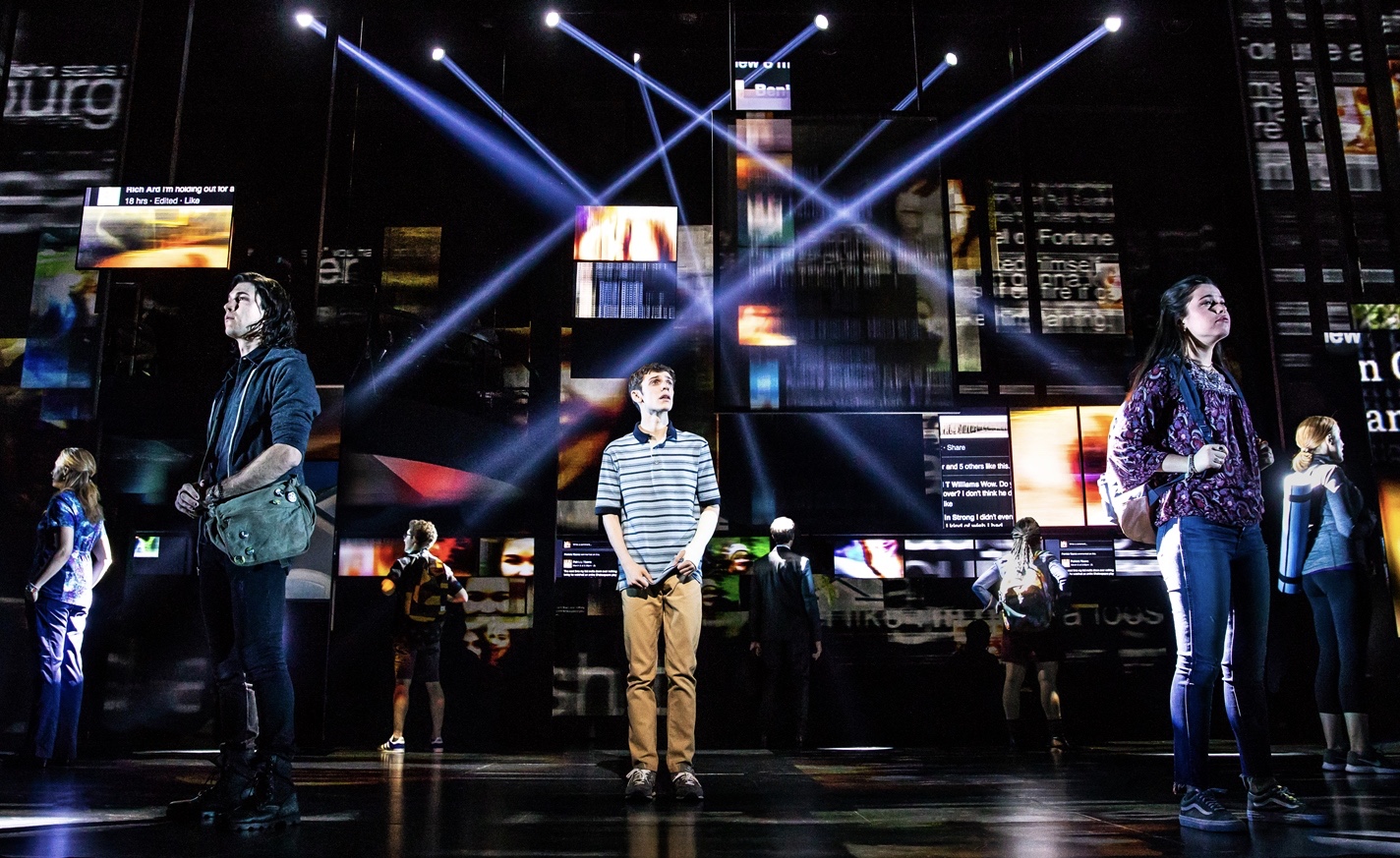
SHADE-O-METER RATING
4 OUTTA 5 WERKS: “SHE GAVE GOOD FACE – SHE SERVED IT”

What’s Dear Evan Hansen? It’s a hit Broadway musical. It opened on Broadway in December 2016, and it won the Tony Award for best musical, as well as other numerous awards. What’s the Au-Rene Theater? It’s the main theater at the Broward Center for the Performing Arts. It holds about 2,600 people, and it has three levels. How was the venue? Elegant. How was the parking? They have valet, or you can park in the garage for $12. The garage is about a block away. There’s also parking lot for $10—which is a bit of a hidden gem—that’s a couple blocks away. It’s across the street from the Museum of Discovery and Science.
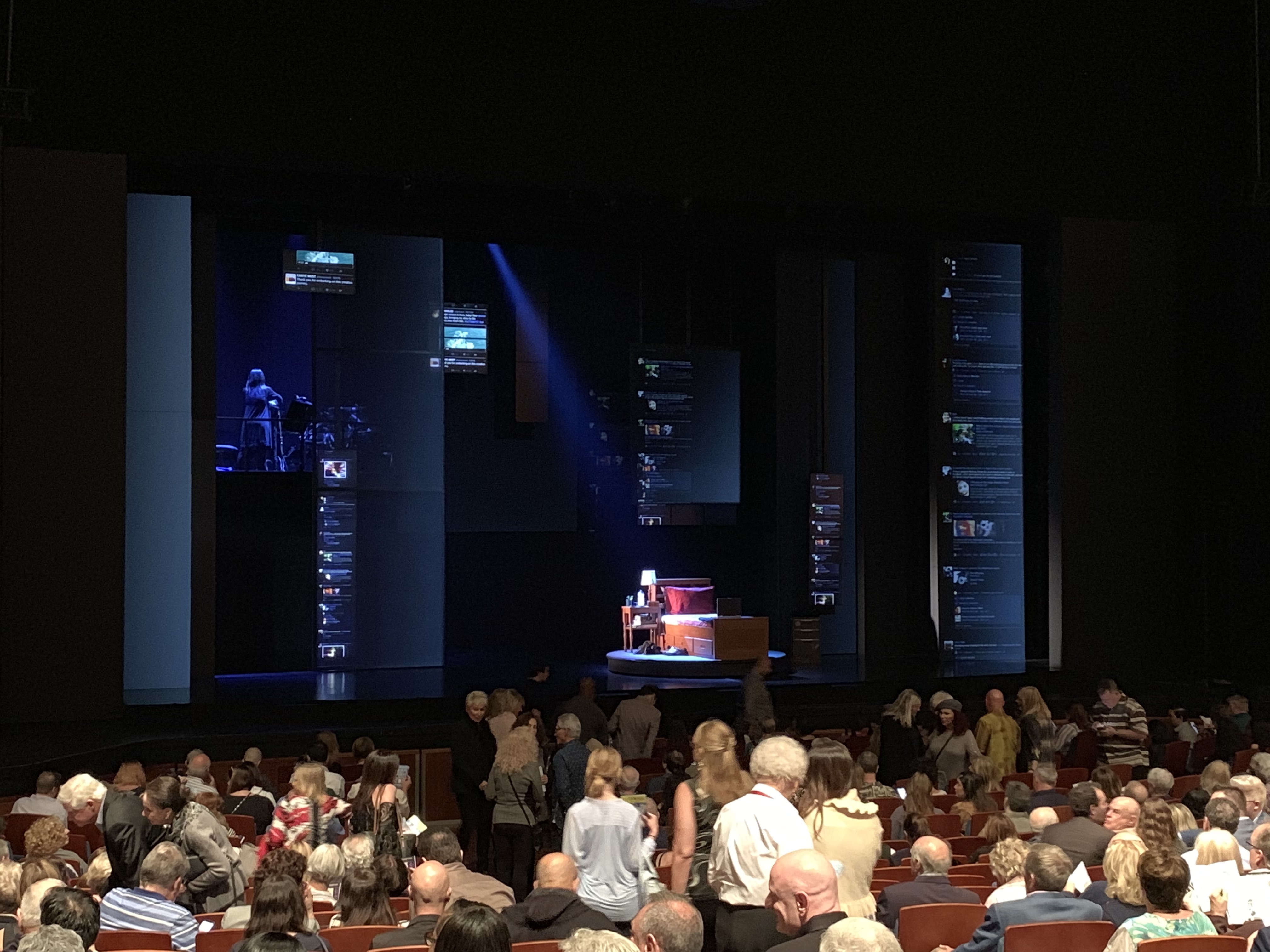
Does the venue serve liquor? Yes. How were the drinks? We didn’t get any. Does the venue serve food? They have some finger food. How was the food? We didn’t get any. Where were the seats? Row X in the orchestra. How much were the tickets? $175.00 each. Was the show sold out? It sure seemed like it. And I looked at what’s available for Sunday April 7 at 6:30 p.m., the last show of the run. Even that show is almost sold out.

How was the show? An intimate show—which is one part a story about deception, and another part about mental illness—Dear Evan Hansen is most likely the direct heir to the similarly-themed Broadway musical, Next to Normal. The dialogue-heavy plot (commence spoiler alert) concerns a high school senior in the titular role who suffers from some undisclosed psychiatric condition, which is mostly agoraphobia/generalized anxiety disorder and/or Asperger syndrome. A sullen classmate, Connor Murphy, commits suicide, and in a turn of events, a fallacious connection is perceived between the outcast Evan Hansen and the recently deceased. In an eerie parallel that foreshadows the events of the Parkland shooting, the remainder of the story is about the community’s desire to understand and make sense of a tragedy, all the while as the middle-class Hansen gets closer and closer to the affluent Murphy family. But it’s only at the very end of the show that that curtain is pulled back on it all. If the title role is performed correctly, and it was for the most part in this touring production, the deceit of Hansen is that he’s viewed as a hero, as opposed to what he really is—someone who tricked a lot of people for a long time, and all for his own gain. The fact that the show doesn’t require that the Caulfield-esk Hansen has to contend with his deeds—it essentially lets him off the hook—underscores the superficiality and fantasy-aspect of this aspect of the text. Another critique of the story might be that it presented a sanitized version of mental illness, characterized as a quirky and charming attribute that enhances the persona and endears one to others, as opposed to a real impediment to an individual’s health and to the larger society.

How was the music? The mostly contemporary score consisted of equal parts light pop-rock music and acoustic music. As a comparison to the aforementioned Next to Normal, which is similar in musical style, that show likely has a higher percentage of better songs. It is assumed that most people will be familiar with the popular, “Waving Through a Window.” However, the more poignant numbers were “For Forever,” where Hansen presented a fantasy version of his friendship with Murphy, and “So Big/So Small,” where Hansen’s mother attempts to reconcile her relationship with her son.
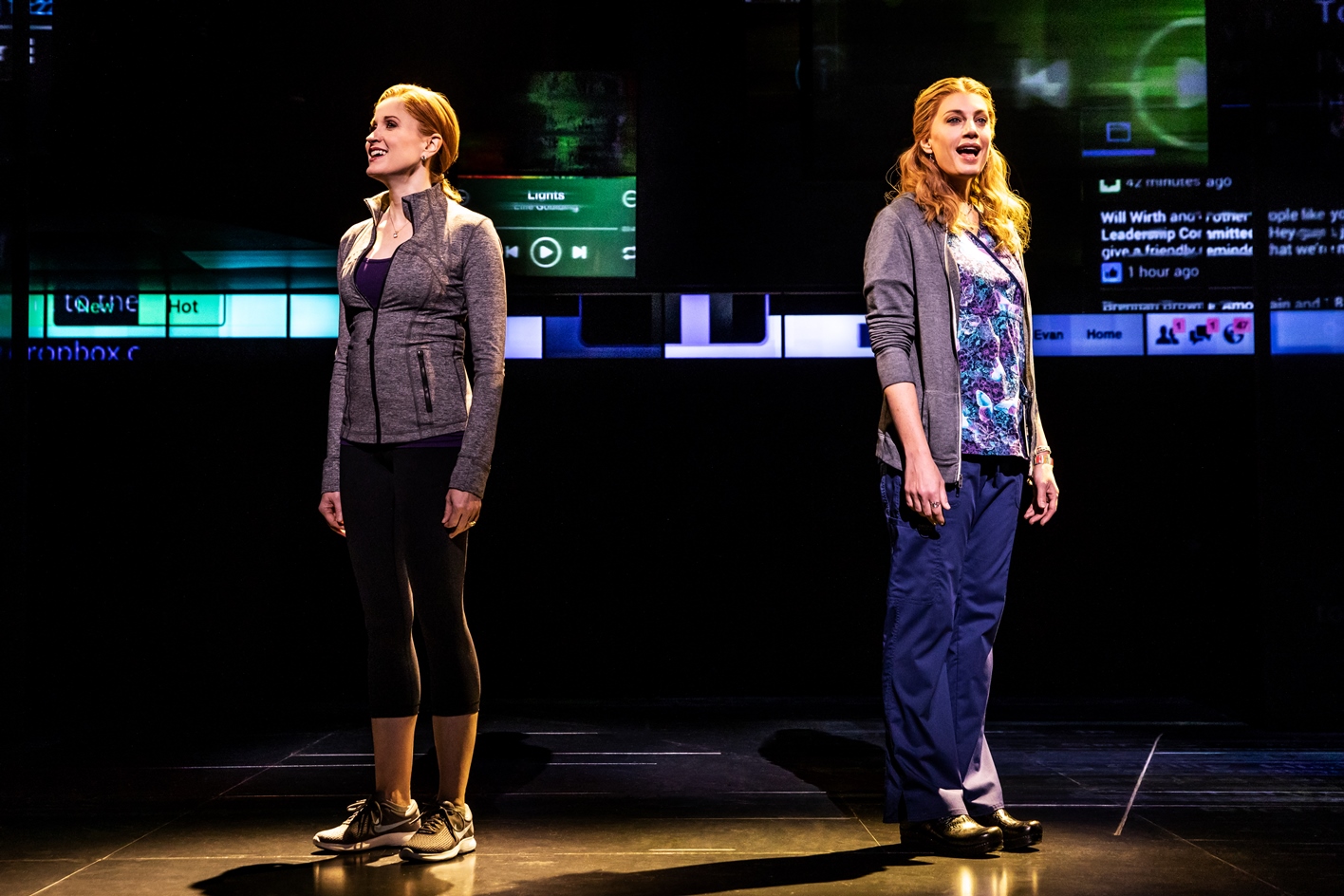
How was the set design and staging? The set design, which consists of computer and phone screen, compartmentalizes the characters, as well as their individual traumas, within those respective devices. But when the screens finally vanished at the end of the show to reveal Candide’s Garden of Eden, was when one of the show’s main themes—a critique of social media—was revealed. How was the costume design? The outfits were contemporary non-fashion attire, so there wasn’t much to look at. Regarding merchandise, that people were buying Hansen’s famous Charlie-Brown-inspired stripped shirt can certainly be seen as some form of proof of the show’s popularity.
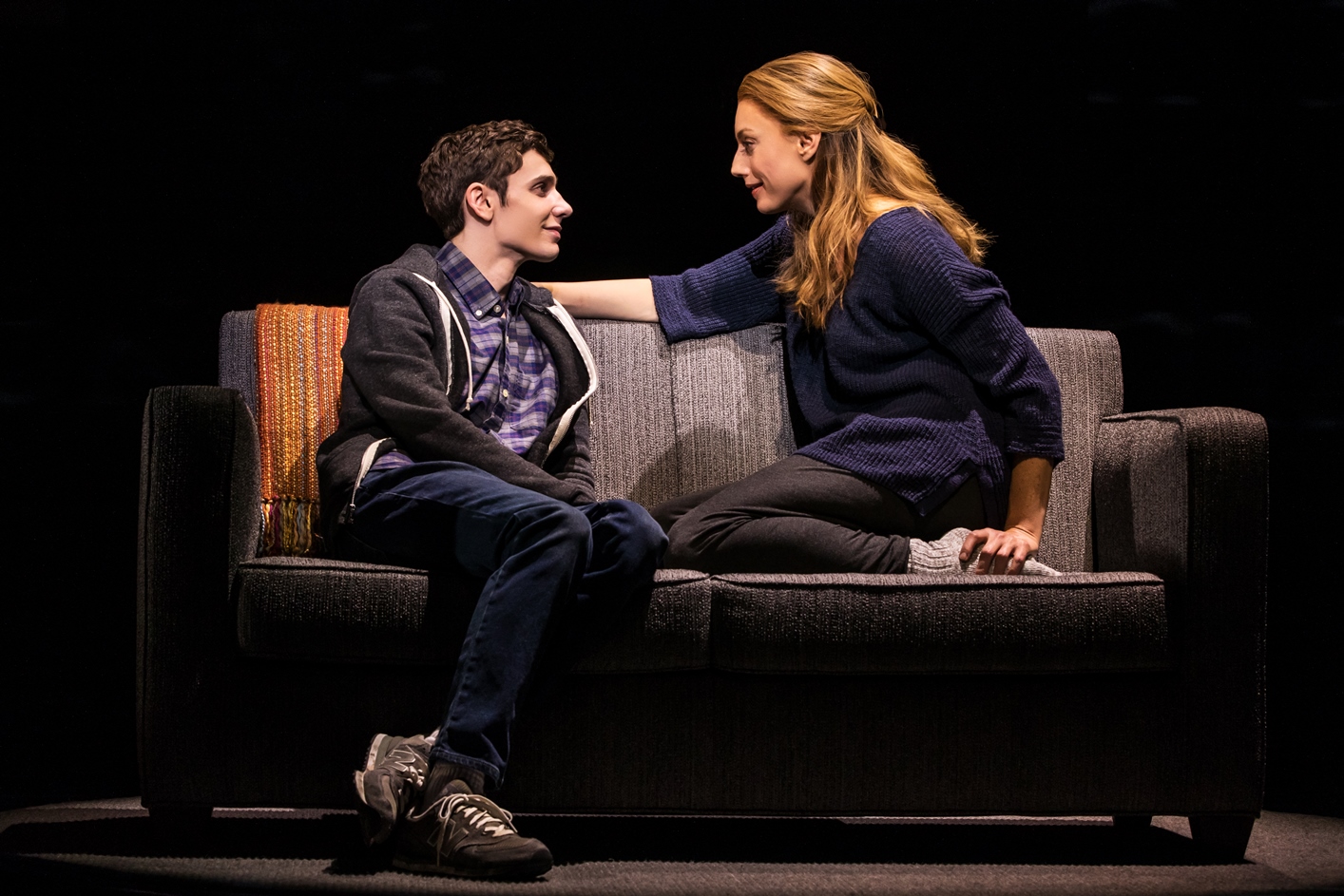
How did the audience react? I heard some people say that the story itself was depressing, but that they didn’t feel depressed because of the music and the way that the story was presented. Others appeared to cry out at some of the more dramatic moments. Particularly, right before Hansen is outed as a fraud in the Mama Rose-like confessional, “Words Fails.” What could have improved the show? As previously expressed in other reviews, in my opinion, theatrical shows should be experienced in intimate theaters. All the more so, for this work. Despite that, unless you plan on seeing the show on Broadway, I wouldn’t let the venue’s size deter you from seeing this production.
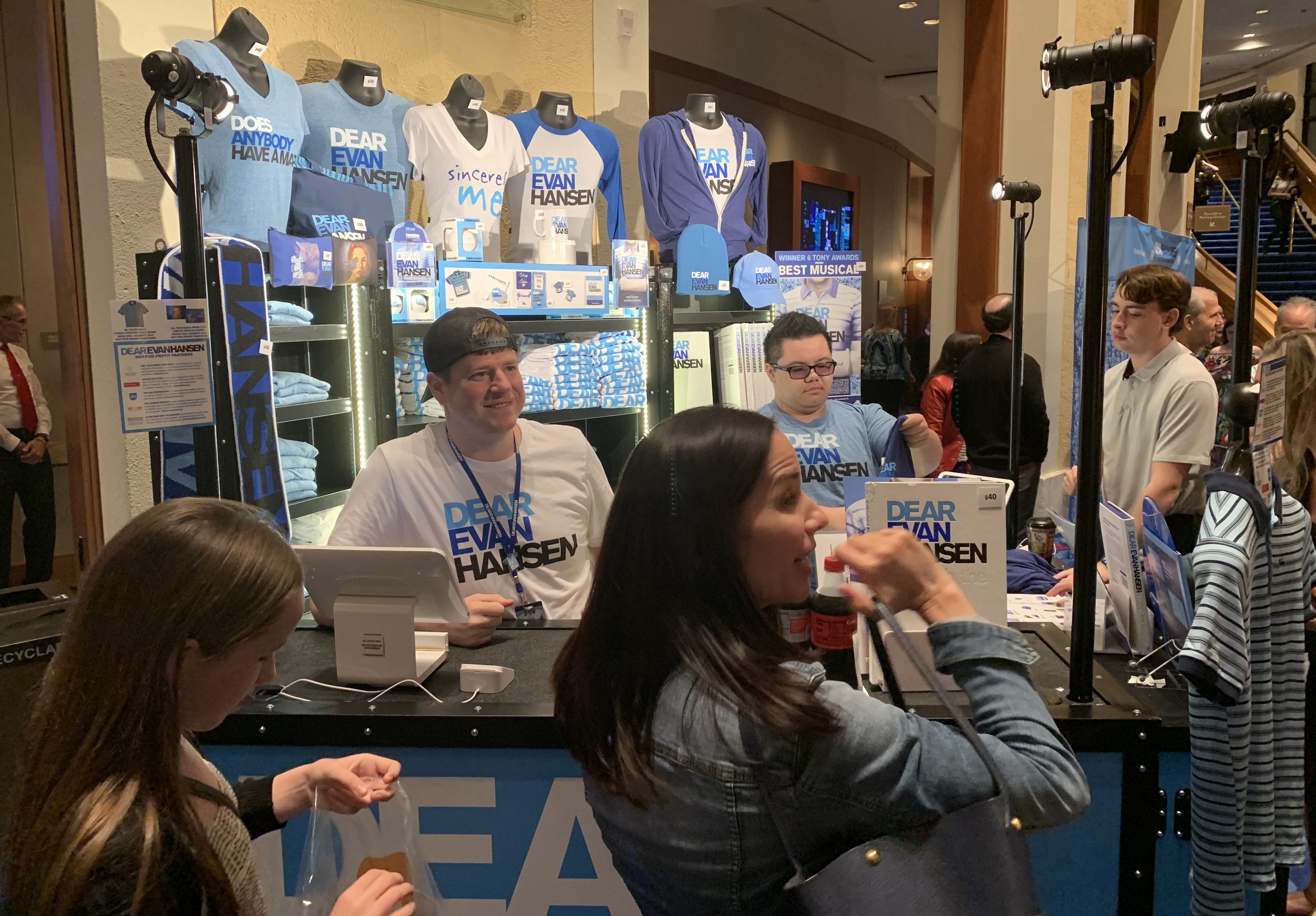
What was surprising about the show? There’s a line in it where Murphy’s father said that kids do everything on Facebook. Please. If anything, it’s those who are in their 30s, 40s and 50s that are obsessed with Facebook, not “kids.” The producers and/or writers might want to consider replacing that Facebook line with Instagram, etc.
The Broward Center for the Performing Arts is located at 201 S.W. 5thAve., in Fort Lauderdale, Florida. Dear Evan Hansen runs through Sunday April 7. Tickets can be purchased on the website or at the box office.
Most descriptive adjective in this intriguing review: “Caulfield-esk”. Good read.